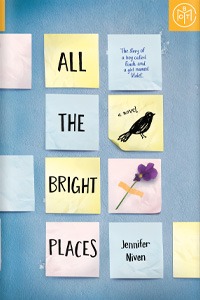i.
While I was still in Amsterdam, I dreamed about my mother for the first time in years. I’d been shut up in my hotel for more than a week, afraid to telephone anybody or go out; and my heart scrambled and floundered at even the most innocent noises: elevator bell, rattle of the minibar cart, even church clocks tolling the hour, de Westertoren, Krijtberg, a dark edge to the clangor, an inwrought fairy-tale sense of doom. By day I sat on the foot of the bed straining to puzzle out the Dutch-language news on television (which was hopeless, since I knew not a word of Dutch) and when I gave up, I sat by the window staring out at the canal with my camel’s-hair coat thrown over my clothes—for I’d left New York in a hurry and the things I’d brought weren’t warm enough, even indoors.
Outside, all was activity and cheer. It was Christmas, lights twinkling on the canal bridges at night; red-cheeked dames en heren, scarves flying in the icy wind, clattered down the cobblestones with Christmas trees lashed to the backs of their bicycles. In the afternoons, an amateur band played Christmas carols that hung tinny and fragile in the winter air.
Chaotic room-service trays; too many cigarettes; lukewarm vodka from duty free. During those restless, shut-up days, I got to know every inch of the room as a prisoner comes to know his cell. It was my first time in Amsterdam; I’d seen almost nothing of the city and yet the room itself, in its bleak, drafty, sunscrubbed beauty, gave a keen sense of Northern Europe, a model of the Netherlands in miniature: whitewash and Protestant probity, co-mingled with deep-dyed luxury brought in merchant ships from the East. I spent an unreasonable amount of time scrutinizing a tiny pair of gilt-framed oils hanging over the bureau, one of peasants skating on an ice-pond by a church, the other a sailboat flouncing on a choppy winter sea: decorative copies, nothing special, though I studied them as if they held, encrypted, some key to the secret heart of the old Flemish masters. Outside, sleet tapped at the windowpanes and drizzled over the canal; and though the brocades were rich and the carpet was soft, still the winter light carried a chilly tone of 1943, privation and austerities, weak tea without sugar and hungry to bed.
Early every morning while it was still black out, before the extra clerks came on duty and the lobby started filling up, I walked downstairs for the newspapers. The hotel staff moved with hushed voices and quiet footsteps, eyes gliding across me coolly as if they didn’t quite see me, the American man in 27 who never came down during the day; and I tried to reassure myself that the night manager (dark suit, crew cut, horn-rimmed glasses) would probably go to some lengths to avert trouble or avoid a fuss.








